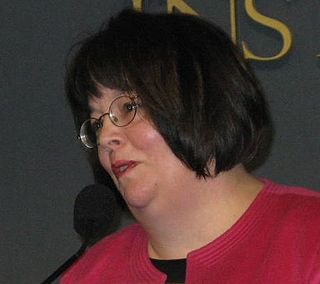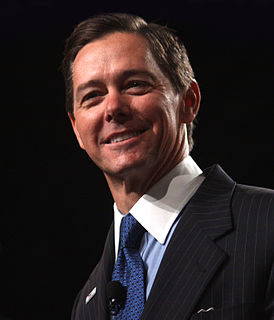A Quote by Maggie Gallagher
To imply that religious believers have no right to engage moral questions in the public square or at the ballot is simply to establish a Reichian secularism as our state faith.
Related Quotes
Today courts wrongly interpret separation of church and state to mean that religion has no place in the public arena, or that morality derived from religion should not be permitted to shape our laws. Somehow freedom for religious expression has become freedom from religious expression. Secularists want to empty the public square of religion and religious-based morality so they can monopolize the shared space of society with their own views. In the process they have made religious believers into second-class citizens.
Thanks in large measure to the ACLU, the belief that there is a wall of separation between faith and state, not just church and state, is endemic. The exercise of religious faith in the public square is not prohibited; only the federal imposition of a particular faith. Hardly anyone any longer knows the difference.
The Constitution forbids states from banning all religion from public spaces and from making churches the ghettos of religion where all manifestations of faith are kept separate from public life. Religious people have an equal right to participate in the public square and to have their contributions to Oklahoma history and society recognized.
With each passing year, people of faith grow increasingly distressed by the hostility of public institutions toward religious expression. We have witnessed the steady erosion of the time-honored rights of religious Americans - both as individuals and as communities - to practice what they believe in the public square.
Secularists are wrong when they ask believers to leave their religion at the door before entering into the public square. Frederick Douglass, Abraham Lincoln, Williams Jennings Bryan, Dorothy Day, Martin Luther King - indeed, the majority of great reformers in American history - were not only motivated by faith, but repeatedly used religious language to argue for their cause. To say that men and women should not inject their "personal morality" into public policy debates is a practical absurdity.
And a noble life is one ordered by, and oriented to, a transcendent moral code, not just one's own concept of existence and meaning and truth. ...if we want a society that reveres life, that defends the family, and that discourages delinquency and promotes decency, we cannot force a privatization of religion; we must allow the truth-claims of religious faith to be uttered aloud in the public square.
There are two kinds of comprehensive doctrines, religious and secular. Those of religious faith will say I give a veiled argument for secularism, and the latter will say I give a veiled argument for religion. I deny both. Each side presumes the basic ideas of constitutional democracy, so my suggestion is that we can make our political arguments in terms of public reason. Then we stand on common ground. That's how we can understand each other and cooperate.
I regard the state of which I am a citizen as a public utility, like the organization that supplies me with water, gas, and electricity. I feel that it is my civic duty to pay my taxes as well as my other bills, and that it is my moral duty to make an honest declaration of my income to the income tax authorities. But I do not feel that I and my fellow citizens have a religious duty to sacrifice our lives in war on behalf of our own state, and, a fortiori, I do not feel that we have an obligation or a right to kill and maim citizens of other states or to devastate their land.






































